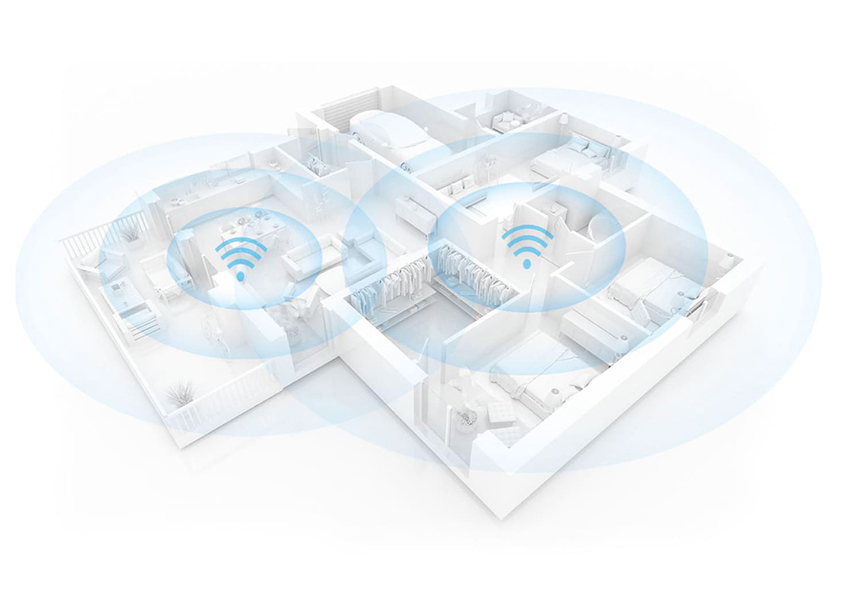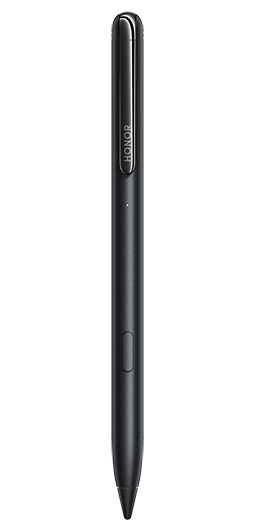TOP

我的荣耀 开启荣耀之旅
To log in to your account, you must first agree to the HONOR PLATFORM TERMS OF USE and HONOR Platform Privacy Statement . If you do not agree, you may only browse the site as a guest.
*You can unsubscribe at any time, Please see our Privacy Statement for details.

Exploring Artificial Intelligence House: Cutting-Edge Smart Home Tech
Imagine a home that knows your preferences, adjusts the lighting automatically, and even manages your security. This is not a sci-fi fantasy; it's the reality of today's artificial intelligence house technology. AI-powered smart homes offer convenience and efficiency like never before. From voice-activated assistants to automated climate control, these innovations make daily tasks easier and more enjoyable. This guide explores the essence of AI in smart homes, its significant impacts, practical examples of its everyday use, and a glimpse into what the future holds for this exciting intersection of technology and domestic life.
What Is Artificial Intelligence in Smart Home?
Artificial intelligence at home refers to the integration of machine learning and automation technologies to manage and control home environments without extensive human intervention. This sophisticated technology enables a variety of artificial intelligence appliances and devices within a home to communicate with each other and operate intelligently. At its core, AI for smart homes involves the use of algorithms and sensors to learn from homeowners' behaviours and preferences to optimise tasks such as lighting, temperature control, and security.
These home AI systems can analyse vast amounts of data from connected devices like thermostats, cameras, and kitchen appliances. This data enables the AI to automate processes in real-time, adapting to the occupants' lifestyles to provide comfort, efficiency, and convenience. Moreover, AI extends its functionality to include predictive maintenance, where it anticipates issues before they occur, and adaptive security measures that can distinguish between normal activity and potential threats, offering homeowners peace of mind with minimal user input.
Impacts of AI on Smart Homes
The integration of AI in smart homes has revolutionised the concept of living spaces, bringing about significant changes that impact efficiency, security, and convenience. Here are some of the ways AI is influencing smart homes:
Enhanced Energy Efficiency
Smart home AI systems optimise energy usage in homes by learning the daily routines of the residents and adjusting the heating, cooling, and lighting systems accordingly. For instance, smart thermostats can adjust temperatures based on the time of day or whether anyone is home, significantly reducing unnecessary energy consumption.
Improved Security
AI-powered security systems provide a higher level of protection compared to traditional systems. These systems can analyse audio and video feeds in real-time, recognising the faces of regular visitors and alerting you to any unusual activity. This not only helps in preventing break-ins but also ensures that the security system is less prone to false alarms.
Convenience and Personalisation
AI home automation contributes to a more convenient and personalised living experience. It can remember your preferences for lighting, music, and temperature, automatically setting your environment just the way you like it. Voice-controlled home AI assistants can manage everything from your schedule to controlling other smart devices, all through simple voice commands. And you can easily adjust and customise these settings using compatible AI smartphones like the HONOR Magic6 Pro.
Health Monitoring
AI smart house has also extended into health monitoring. AI home systems can track environmental conditions like air quality and humidity, adjusting them to optimal levels for health and comfort. Some advanced setups even monitor the occupants' health, providing reminders for medication or alerts in case of emergencies like falls.
Everyday Examples of AI in Smart Homes
AI has woven itself into the fabric of daily life through smart home technology, making everyday tasks simpler and more intuitive. Here are some concrete examples of how AI is being used in smart homes today:
Voice-Controlled Assistants
Perhaps the most familiar face of AI in homes is voice-controlled assistants like Alexa or Google Assistant. Devices like Amazon Alexa, Google Home, or Android AI smartphones equipped with built-in Google Assistant, like the HONOR Magic V2, use AI to understand and respond to your voice commands, allowing you to manage everything from playing music to providing weather updates, all hands-free. They can also learn from your requests to provide more tailored responses over time.
Smart Thermostats
Devices like the Nest Thermostat use AI to learn the household's heating and cooling preferences to automatically adjust settings for optimal comfort and energy efficiency. Over time, these AI-based home automation systems learn from your habits and adjust the temperature automatically before you even think about it.
Intelligent Lighting Systems
Smart lighting systems use AI to learn your schedule and lighting preferences. They can automatically adjust the brightness and colour based on the time of day or the activity you are engaged in, such as dimming lights gradually as it gets closer to your bedtime to help you wind down.
AI-Powered Security Cameras
Smart security cameras and doorbells use AI to differentiate between regular movement, like a pet running through the room, and unusual activity that might indicate a security threat. They can send real-time alerts to your phone about suspicious activity, distinguishing between known visitors and strangers.
Robotic Vacuum Cleaners
These handy devices use AI to map out living spaces and plan efficient cleaning routes. Over time, they learn to navigate around obstacles more effectively and can be scheduled to clean at the most convenient times, ensuring minimal disruption.
Intelligent Fridges
Modern AI smart refrigerators can keep track of your groceries, suggest recipes based on what you have on hand, and alert you when you're running low on essential items. Some models can also stream music or display family calendars and photos, acting as a central hub in the kitchen.
Future Tendency of Artificial Intelligence in Smart Homes
The future of AI in smart homes promises even more advanced integration and innovative applications that will further transform our living environments. Future smart homes will use AI to not just respond to our commands but to anticipate needs before they are expressed. For example, AI could analyse health data and daily habits to adjust lighting, temperature, and even suggest meals to optimise your well-being.
As more devices become smart, AI will play a crucial role in ensuring these devices work together seamlessly. Future AI in smart homes will manage interconnected devices with greater efficiency, from kitchen appliances to entertainment systems, creating a truly integrated smart home ecosystem.
Security will see significant advancements with AI being able to distinguish between different types of threats more accurately and even predict potential security breaches before they occur. Enhanced facial recognition, unusual behaviour detection, and improved cybersecurity measures will make smart homes safer than ever.
Conclusion
The integration of AI and smart homes brings remarkable benefits, making daily life more convenient and efficient. AI-powered home automation systems create a highly personalised living environment, adjusting settings based on your preferences and habits. They also enhance security and energy management, providing real-time alerts and optimising usage to save costs. With continuous advancements, the future of the artificial intelligence house promises even greater innovations, ensuring smarter, safer, and more enjoyable homes.
FAQs
How does AI improve daily household activities?
AI improves daily household activities by automating tasks, enhancing convenience, and increasing efficiency. AI-powered devices like smart thermostats learn your preferences and adjust settings for optimal comfort and energy savings. Voice assistants handle routine tasks like setting reminders and controlling other smart devices with simple voice commands. Additionally, AI can manage security systems, optimise lighting and entertainment based on your behaviour, and even assist in cooking by suggesting recipes and monitoring food inventory.
What are the benefits of a smart home?
Smart homes offer increased convenience, enhanced security, energy efficiency, and improved appliance functionality. By automating tasks such as lighting and heating, smart homes can make daily routines more convenient. They also allow you to monitor your properties remotely, offering peace of mind through real-time alerts and security cameras. Additionally, smart homes can optimise energy usage to reduce costs and environmental impact, while also allowing for more personalised control over home environments.
Source: HONOR Club

Subscribe For Updates - Special Offers And More.
By providing your email address, you consent to receive the latest offers and information on Honor products, events and services through email or advertisement on third-party platforms. You can unsubscribe anytime according to Chapter 5 of HONOR Platform Privacy Statement.
Consumer hotline
80004444408 Monday to Sunday,9:00am-9:00pm
ae.support@honor.com
Copyright © HONOR 2017-2025.All rights reserved.
We use cookies and similar technologies to make our website work efficiently, as well as to analyze our website traffic and for advertising purposes.
By clicking on "Accept all cookies" you allow the storage of cookies on your device. For more information, take a look at our Cookie Policy.
Functional cookies are used to improve functionality and personalization, such as when playing videos or during live chats.
Analytical cookies provide information on how this site is used. This improves the user experience. The data collected is aggregated and made anonymous.
Advertising cookies provide information about user interactions with HONOR content. This helps us better understand the effectiveness of the content of our emails and our website.





















































